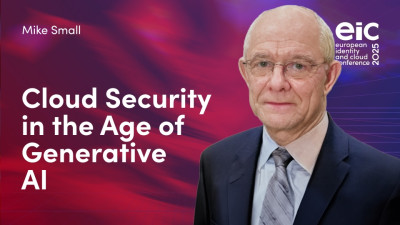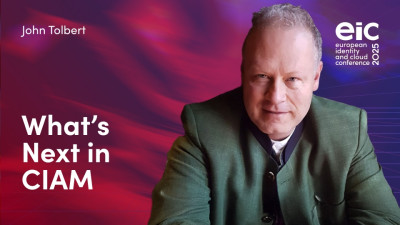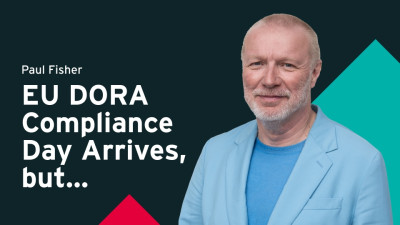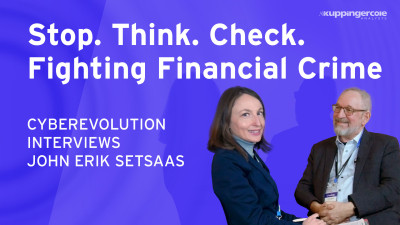Okay. The final talk for today's session before the lunch break, I want to introduce you to Dua Blackburn of miter cooperation, and he will change the topic a bit and he will talk about a learning identity agenda for federal identity. He will be online. He will be talking from his own office and I'm really looking forward to your presentation. The stage is yours.
Dwayne,
Thank you so much. It's, it's great to be here virtually, at least didn't know that I was the last thing that you all had to sit through before lunch for me, I get through this and then I get to have breakfast. So a little bit of food for everybody. What we're gonna go through today is a little bit of a background first about who am I? So hopefully you have some interest fed ID background with the heck it's a learning agenda. And then what did we discover as we were developing this learning agenda?
So, first off, who, who am I Dwayne Blackburn from the MI corporation I've been here for about 10 years prior to that, I spent about 15 years in the us federal government. So I managed identity programs in the departments of defense and justice helped establish Homeland security activities. And as well spent eight years in our white house where I was leading, who government activities and identity and other matters now at Mir, for those not aware, that is a not-for-profit corporation that was established to manage federally funded research and development centers.
Those are entities that the federal government establishes to kind of help its help it out. So it's kind of in between government and industry, but kind of sits on the government side of the table. So we kind of help them out doing things that the government can't do or the private sector can't or doesn't want to do.
And again, just kind of serves as is, is kind of intermediary between the two, moving on a little bit fed ID itself has existed in some degree for about 30 years. It actually started first as an informal government only meetings at our national security agency and was formally chartered by the white house's national security council in 1995. So it is very beginning.
It was government only really worked to try to coordinate activities expanded into holding an annual conference, had an administration change, different things happened, but essentially the, the identity portfolio of advancement portfolio at least got moved over to the office of science and technology policy.
That's where I was recruited into the white house to work. We then continued the biometric consortium as the government's interface with the private sector continued on that one. And then recently we changed it to the federal identity forum and exposition.
So it is an annual identity conference that is focused on federal government needs. So us federal government needs. So the that's the consistent part. The inconsistent part is those needs vary every year. And so the conference will focus on what the us federal government really needs to work on for that year. Some years, it's a lot of information providing to the broader identity communities. Sometimes it's interactions back and forth.
The, you can see that at the bottom here, the URL for the 2020 due conference, which will be in Atlanta in September learning agendas. That's kind of a new concept in our government, but also not a new concept.
So the basic idea is it's a coordinating tool to help identify and then coalesce around a different set of capability gaps, both within the federal government, as well as the private sector so that we can collaboratively work on them and try to advance the state of the possible.
In many years past these were called grand challenge documents serve the same thing, little bit different, but basically there's the same basic process of, you know, gathering all the different stakeholders that's inside government and outside government. Really try to identify what the major areas are, agree on what the desired instate is. And then kind of do that analysis, sorry if that's where we're trying to go, here's where we are. What are the key things to get us from there or from where we are to where we need to go.
And then once you know, those, you then formalize and prioritize questions that kind of help everyone in the community, understand what those gaps are, how to best work on them so that we have that common understanding and can really work on them collaboratively, going together and developing a learning agenda was our focus for the 2021 fed ID conference.
So it's not a formal white house led learning agenda, like, like some others, but it's still a, a public private community based development of that learning agenda.
Following the, the, the conference, we put out the learning agenda document, which you can get here from that, that short URL. And we had three sections within that document, which I'm going to explain here for you.
Again, these three, we decided as, as part of this exercise and then had conversations on each, within the conference, which led to the development of the document and the learning Egen questions. So the first section is on identity proofing and fraud detection. That's again, not something new, but the, the COVID 19 pandemic that we've really been suffering through for the last couple years spotlighted known. But unfortunately often UNPRI on prioritized identity challenges within our governance benefit programs.
And it really accelerated necessarily an insignificant number, but identity is a significant aspect of that problem. So what we decided was research needs to advance the technology, overcome Federation issues to work collaboratively.
So our federal government working with state governments and local governments, and then to also better leverage external activities.
Now, since this time there's been lots of subsequent activity within the us government on this activity issues continue to arise with our federated approach to government and the result in identity approaches that that means there's gonna be more formally to come on this issue in the short term, coming out of the white house. Second area is defense intelligence, Homeland security, and law enforcement, which honestly has been the primary focus for the fed ID community for 20 years and has resulted in many national and international positive impacts.
But we decided that priority needs remain including modernizing applications to better ensure privacy and equitable outcomes. Research priorities include meeting some specific operational needs, data sharing and interoperability concerns and looking to the future. The most difficult of these problems is probably the last one that you see up there as it requires identity experts to learn about these issues.
And these other issue experts to properly learn about identity matters.
This has always been a problematic issue, is both communities are often unwilling to look at the issue from any perspective beyond their own solutions will require mutual understanding and respect to, to be solved. Then the third area is on face recognition, which is also sometimes we refer to as facial recognition, but which is different than facial character characterization activities. So that's receiving substantial attention by legislators of policy makers throughout the world, fueled, impart by advocates that would like to see the technology actually banned now by its nature.
Face recognition will never exist without legitimate associated concerns. So it's use must include the appropriate safeguards and strong privacy protections from, from the beginning. It's clear that our community must enhance and mature its activities in this regard. Now these efforts, unfortunately are further complicated as most policy advocacy materials on the subject are lacking in scientific integrity offense, very significantly, and sometimes purposefully developed to influence audiences rather than to accurately inform them.
Indeed, the largest issue with face recognition in 2022 is not the technology, but rather the vast amount of false information that's out there that is serving as the basis for a lot of policy analyses today. So our research needs include continuing to advance capabilities and minimize performance differentials, recognizing future threats of, of record crosslinking and morphing and helping to get conversations and analyses on this topic onto a more accurate foundation.
So again, wanted to make it make you all aware of this learning agenda.
And the upcoming conference again is in, is in September and in Atlanta. And so our hope is that by providing this information in this document and at this conference, it will help catalyze activities around what we've viewed as the most important for our federal government and most likely other federal governments in the identity space so that we can all serve our, our citizens and other constituencies properly with that. I thank you for the time and am open to questions.


















































